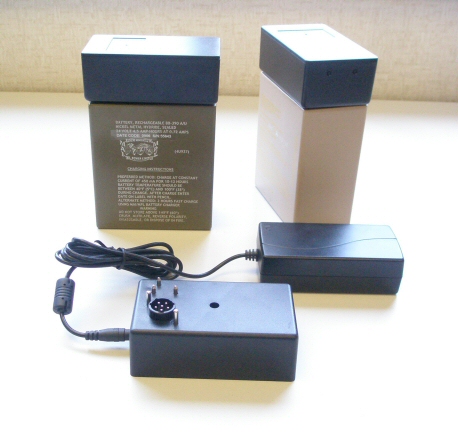The lithium-ion battery, also called the Li-Ion battery, is a device designed for the storage of electrical energy that uses an electrolyte. In lithium-ion batteries, the cathode is usually made of a chemical compound called lithium-cobalt oxide (iCoO2) or, in more recent piles, of lithium iron phosphate (LiFePO4), to avoid using cobalt, an expensive and scarce chemical element. Some important military equipment, such as a PAPR respirator, can run on both lithium and standard AA batteries for up to 12 hours, offering flexibility and reassurance that one can carry backup batteries, just in case, that will do the same job that lithium batteries would.
As its name indicates, it separates the positive and negative electrodes, avoiding short circuits between both; it also allows the ions to pass through their micropores. Below are some reasons why lithium-ion batteries are good for Military application especially in extreme hard environment and make it Wide Temperature Battery:
- Fast Charging For Greater Comfort And Slow To Last Longer: The Apple Lithium-Ion battery charges quickly until it reaches 80% capacity, and then switches to a slower charge. The time it takes to reach 80% depends on the configuration and the device you are loading. The software can limit the load above 80% when the recommended battery temperatures are exceeded. This combined charging process not only allows you to charge the device faster but also extends the life of the battery.
- Greater Voltage: Lithium has 3.16 volts in contrast to the 2 volts of lead. Thus, a LiFePO4 battery has a nominal voltage of 12.8 volts after the series connection of 4 cells. Or 25.6 volts after the union of 8 cells.
- Without Optimal Load: Lead batteries are well placed in the upper load range. With a 20% download is when they have more life. In contrast, lithium batteries work perfectly with non-full charges. They can be almost completely discharged without much damage (as opposed to lead-acid batteries that only support discharges of up to 50%).
- Longer Life: 4000 cycles with 80% depth of discharge. An open lead-acid monoblock battery has 500 cycles. A monoblock deep cycle battery has about 2000 cycles. And a stationary lead-acid battery has 4000 cycles although with 50% maximum discharge.
- Very Low Self-Discharge Rate: When we save a battery, it is discharged progressively although we do not use it.
- Lithium-ion batteries have a security system that prevents overloading: You go to sleep, you leave the phone on all night without disconnecting it, and when you reach 100% the power is cut, but it is advisable to disconnect it.
Here note that there are people who will tell you that as we have this system is not harmful, but it is best to remove it as soon as possible because 100% battery is slowly discharged (because it will, there is no battery today that does not discharge alone). However it will load again activating the security system, later the same thing will happen, and it will be reloaded and so for 6-7 hours every night, that is not positive.
With Li-Ion batteries, decentralized energy self-consumption is easier. These advantages make lithium-ion batteries an excellent solution for usages of Military application in tough conditions. For more solid, potent and stable batteries, to see more click our website Large Power batteries are that so useful and reliable for Military applications even in severe environmental conditions.
